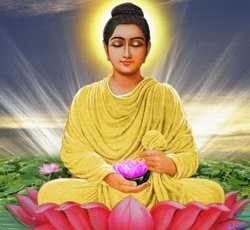Prātimokṣa
- See also :
- See also :
prātimokṣa (波羅提木叉).
The Sanskrit word prati means toward or severally, and mokṣa means liberation. The term prātimokṣa is translated into Chinese as “liberation achieved severally” (別解脫).
It is also referred to as prātimokṣa-saṁvara, where saṁvara means restraint (律儀), or more commonly as prātimokṣa-śīla, where śīla means precept (戒), because observance of different precepts leads to liberation severally from corresponding evils of one’s body, voice, and mind.
Moreover, prātimokṣa precepts instituted by the Buddha for His seven groups of disciples in the desire realm are separate from meditation precepts (定共戒) that naturally arise in one’s mind from one’s meditation at the form-realm level, and separate from affliction-free precepts (無漏戒) that naturally arise in one’s mind from one’s realization of bodhi.
